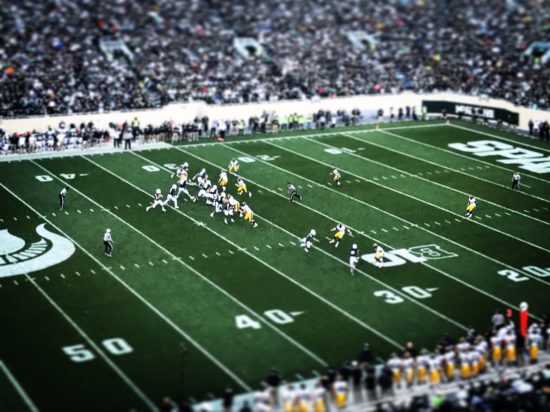
Maybe it is superstition, maybe there is some truth to it, but many investors believe that the outcome of the Super Bowl has an effect on the stock market. Although the two don’t seem to be related at all, many people who invest in the New York Stock exchange or the NASDAQ believe this to be true. Why?
The Super Bowl Halo Effect
It seems a bit crazy to make financial decisions based on a football game. However, many people place money on one team versus another for the big game by betting, so does the same thing carry through in your long-term investments?
Well, there is no statistical relationship between the Super Bowl and the livelihood of stocks, but many investors still believe in what is called the “Super Bowl Halo Effect.”
The Super Bowl is the final game of the year for the National Football League. It usually occurs at the end of January or beginning of February but always on a Sunday. The NFL, unlike many other professional sports leagues, uses two different bracket systems. The two parts (the AFC and NFC) meet at the Super Bowl. So, how does this game affect the stocks?
How the Super Bowl Affects the Stock Market
It likely doesn’t, but there is a reason so many people believe it does. The Dow Jones, statistically speaking, tends to do better on the years that a team from the NFC wins the Super Bowl. On years a team from the AFC wins, the Dow tends to end the year lower. This is how the Dow has performed about 80 percent of the time as far as the “Super Bowl Halo Effect” goes.
If an investor chooses to “bet” on this being the case, they are in luck because the Super Bowl occurs early in the year, so they have plenty of time to invest their money. However, there is no logical reason why the should other than circumstantial evidence.
The relationship between the Super Bowl and stocks is a “false positive” at best, according to statisticians. This means that the effects of the big game on stocks are simply coincidence. For instance, if you took a child’s test scores and compared the numbers to the number of people who wear mix-matched socks, you would eventually find a correlation. The two obviously would not cause one another, but even though they may seem to have a correlation over time, it is just by chance. They are not causal.
This probably isn’t enough evidence to invest a substantial amount of money on anything. However, there is a much more likely correlation between the Super Bowl and stocks that no one is really paying attention to.
Where to Really Put Your Money During the Super Bowl
The Super Bowl is held in a different city each year and it seemingly boosts the economy of the area in which it is held. A University of Connecticut study published in 2015 showed that the returns on stocks for firms and companies based in the city in which the big game is held increase significantly. In fact, on average, the returns increase by 9.65 percent. Now, that is something to put your money on and makes far more sense than an NFC vs. AFC whim.
It will be interesting to read the results of the economic rewards of Super Bowl 52 in Minneapolis, as well as the results of the Dow with the New England Patriots AFC, win.
What are your thoughts? Do you notice how the Super Bowl affects the stock market?

James Hendrickson is an internet entrepreneur, blogging junky, hunter and personal finance geek. When he’s not lurking in coffee shops in Portland, Oregon, you’ll find him in the Pacific Northwest’s great outdoors. James has a masters degree in Sociology from the University of Maryland at College Park and a Bachelors degree on Sociology from Earlham College. He loves individual stocks, bonds and precious metals.
Comments